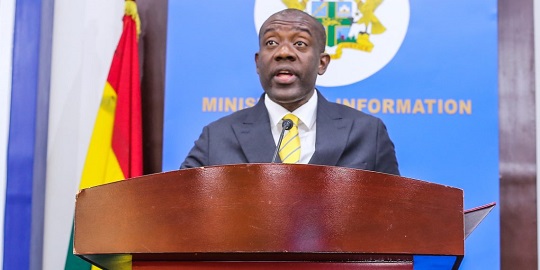Minister for Information, Oppong Nkrumah has stated that the government has not sidelined the idea of cutting expenditures amid the current economic crisis.
He said the government was still open to the idea of making sacrifices for the country.
“It is fair to remind ourselves that already some cuts have taken place, in addition to those cuts it is also fair to continuously examine where some further cuts can take place. I have never attended any government meeting that says the government was closed to further cuts, he told Joy News.
“From what I know, the government is very open to any further cuts that it can undertake to ensure that pressures on expenditure are held in abeyance,” he stated.
However, he pointed out that a lot was expected from the government. Therefore, the need for human resources to satisfy those needs.
“We’re the same people who are asking for more public sector jobs, the budgetary allocation for ministries to be released so that they can deliver on the social contracts, we are the same people asking for more roads in our constituencies, we are the same people asking for exemptions from the Domestic Debt Exchange. So, in one breath, we all agreeing that government should as much as possible look at ways to cut its expenditure commitments in another breath we are all demanding our share of the national cake,” he noted.
The Minister further indicated that President Akufo-Addo had assented into law, the three new tax bills passed by parliament late last month into law.
The three new taxes are Excise Duty Amendment Bill 2022, the Growth and Sustainability Levy Bill, 2022, the Ghana Revenue Authority Bill 2022 and the Income Tax Amendment Bill 2022.
The bills were presented to Parliament as part of the government’s plans to raise about 4 billion Ghana Cedis annually in domestic revenue mobilization. They are also crucial to help secure Board Approval for the US$3 billion IMF programme after a staff-level agreement was reached late last year.





